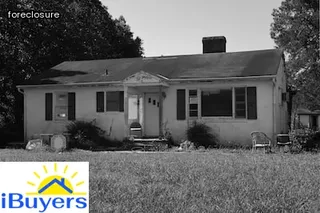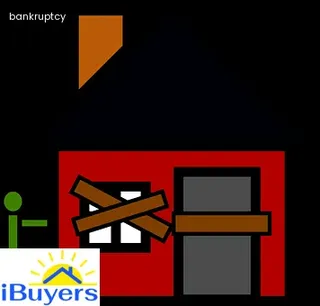A deed in lieu of foreclosure is an agreement between a homeowner and lender that allows the homeowner to voluntarily give up their property to pay off the mortgage debt. To be eligible for this type of agreement, the borrower must not have any other outstanding debts or liens on their property.
Before engaging in a deed in lieu of foreclosure, it's important to understand the basics. A deed in lieu of foreclosure is a legal agreement that transfers ownership of the property from the homeowner to the lender, which helps minimize credit damage and avoid a costly and lengthy foreclosure process.
The homeowner must meet certain criteria in order to qualify for this type of agreement. This includes having no other sources of income and being behind on payments for at least two months.
The lender may also require that all liens are paid off before they accept a deed in lieu of foreclosure agreement. Once both parties agree to the terms, they will sign documents that transfer ownership and title of the home from the homeowner to the lender.
This means that all debt obligations associated with the property are released, including any taxes or legal fees associated with foreclosure proceedings. Understanding these basics can help homeowners make informed decisions about whether or not a deed in lieu of foreclosure is right for them, allowing them to minimize credit damage and avoid an expensive and drawn-out process.

A Deed in Lieu of Foreclosure (DIL) is an agreement between a homeowner and their mortgage lender that allows the homeowner to voluntarily transfer ownership of their property back to the lender in exchange for debt forgiveness.
This alternative to foreclosure can be beneficial for both parties as it allows the homeowner to avoid the legal costs associated with foreclosure proceedings, and it provides lenders with a quicker resolution than other foreclosure processes.
On the other hand, a DIL does not always offer full protection from credit damage and may still have a negative impact on a person’s credit score.
It is important for homeowners considering this option to understand how their credit will be affected and take steps to minimize any potential damage.
When facing financial hardship, it can be difficult to know what to do. If you are considering a deed in lieu of foreclosure as a way of minimizing credit damage, it is important to understand the process and explore whether this option is right for you.
A deed in lieu of foreclosure is a legal agreement between you and your lender where you voluntarily transfer ownership of the property back to the lender in exchange for debt relief. It is an alternative to going through the lengthy foreclosure process and results in less damage to your credit score.
However, there are some drawbacks that should also be considered before moving forward. For starters, lenders may require certain conditions to be met before they will accept a deed in lieu of foreclosure such as providing proof that all other payment options have been exhausted.
Additionally, depending on the terms, taxes may still need to be paid on the forgiven debt or you may face penalties from the IRS. It is important to weigh all of these factors carefully when deciding whether this option is right for you.

When considering a deed in lieu of foreclosure, it is important to assess the situation and determine if this option is right for you. A deed in lieu of foreclosure is a voluntary agreement between a borrower and lender that allows the borrower to hand over the title of their property in exchange for the lender forgiving the debt.
It can be beneficial because it generally results in fewer negative impacts on your credit score than a foreclosure would, however, there are still some potential drawbacks. There are certain circumstances where taking out a loan modification or short sale might make more sense.
Additionally, not all lenders accept deeds in lieu of foreclosure as an option, so you should discuss your options with your lender before making any decisions. Depending on your situation, you may have to pay additional fees or taxes related to the transfer of ownership.
Before proceeding with any kind of mortgage relief program, it is important to contact a knowledgeable and experienced professional who can help guide you through the process and ensure that you get the best outcome for your financial circumstances.
Choosing a deed in lieu of foreclosure is often a preferable option for those struggling with their mortgage payments. It can be beneficial to the homeowner because it allows them to avoid the lengthy and expensive foreclosure process, which can cause considerable damage to their credit score.
Additionally, a deed in lieu of foreclosure is also less damaging than a full-blown foreclosure when it comes to the homeowner’s credit report. For example, it does not involve going through the courts or having an official record of the foreclosure on public record.
Furthermore, since lenders are typically willing to accept lower amounts than what was originally owed when taking title in a deed in lieu of foreclosure situation, this can help minimize any negative impacts on the borrower’s credit rating. Finally, lenders may also be more likely to work with homeowners who are attempting to negotiate a deed in lieu of foreclosure versus those who just don’t make their payments as negotiated.
This means that if done correctly, choosing a deed in lieu of foreclosure can be one of the most attractive options available for avoiding credit damage related to mortgage delinquency.

Choosing a deed in lieu of foreclosure can have significant consequences for your credit score and overall financial health. A deed in lieu of foreclosure is an agreement that grants the lender ownership of a property in exchange for the forgiveness of the remaining balance on a loan.
While this arrangement does help to minimize damage to your credit, it still has a substantial impact. When you enter into a deed in lieu of foreclosure, your credit score will take an immediate hit and remain affected for up to seven years.
This means lenders are less likely to extend you financing for credit cards or other loans during this time period. Additionally, creditors may increase interest rates on other accounts due to the perceived risk associated with granting you new debt.
Furthermore, some lenders may require that you wait several months before applying for new financing as well as make larger down payments when applying for a mortgage after choosing a deed in lieu of foreclosure. While these effects can be minimized through proper financial management, they are still very real consequences that must be taken into consideration before pursuing a deed in lieu of foreclosure.
A deed in lieu of foreclosure is an alternative to a traditional foreclosure that can be beneficial for both lenders and borrowers. It is a voluntary agreement between the lender and borrower where the borrower transfers ownership of their home to the lender in exchange for debt forgiveness.
A deed in lieu of foreclosure can help minimize credit damage as it often has a lesser impact than a traditional foreclosure. Unlike a traditional foreclosure, when using the deed in lieu option, there are no court proceedings or public record.
It is important to note that lenders may not always accept this agreement, but typically only if they have exhausted all other options first. In order to be eligible for this option, borrowers must demonstrate their inability to continue making payments on their loan.
Deed in lieu agreements should also be considered carefully as it could result in tax implications and other long-term consequences such as difficulty obtaining future loans or mortgages. Ultimately, when considering whether or not to pursue a deed in lieu of foreclosure, borrowers should weigh the risks with the potential benefits and make an informed decision that best fits their individual circumstances.

When considering a deed in lieu of foreclosure, it is important to weigh the potential risks and benefits. A deed in lieu of foreclosure can help minimize credit damage as it looks better on your credit report than a foreclosure and typically results in fewer negative marks.
However, this option may not be possible for everyone since some lenders may not accept it. Additionally, you will no longer own the home if you choose to pursue a deed in lieu so this must be taken into account before making a decision.
Furthermore, there may be tax implications associated with surrendering the property. Understanding all the short-term and long-term implications is key to making an informed decision that works best for your financial situation.
When considering a deed in lieu of foreclosure, it is important to understand the process and the steps necessary to request one from your lender. The first step is to reach out and contact the lender with whom you have a mortgage loan.
Make sure that you have all of your financial documents on hand, such as income statements, credit reports, and tax returns, as they will likely be required by your lender. Once contacted, explain to them why you are unable to continue making payments on your loan, and discuss the options available for a deed in lieu.
Your lender may also require additional documentation from you in order to make an informed decision about whether or not they can accept a deed in lieu. Additionally, be prepared for potential negotiations if the terms do not work for both parties involved.
Understand that there may be other restrictions imposed by lenders regarding what kind of deed in lieu agreement they are willing to accept. If all goes well, your lender should provide written confirmation that they have accepted the deed in lieu and will release any lien or claim against the property after all agreed upon conditions have been met.

When it comes to minimizing credit damage from a deed in lieu of foreclosure, the best way to go about it is to take things step by step. First, meet with your mortgage lender and explain your situation.
It’s important to be honest and upfront; if you are in financial trouble, make sure your lender knows that. Your lender may be able to provide assistance that could help you avoid foreclosure altogether.
If not, they can provide information on how to proceed with a deed in lieu of foreclosure. Next, you will need to review all of the documents associated with the process.
Make sure you understand exactly what you are agreeing to before signing anything. You will also need to ask lots of questions and do your research so that you make an informed decision.
Finally, after completing all of the required paperwork and satisfying any other obligations such as paying closing costs or other fees, the deed in lieu of foreclosure should be finalized within 30 days or less. Understanding this process and taking each step carefully can help minimize credit damage associated with a deed in lieu of foreclosure.
When a borrower is unable to make their mortgage payments and faces the possibility of foreclosure, they may consider offering a deed in lieu of foreclosure. A deed in lieu of foreclosure is an agreement between the lender and borrower where the borrower voluntarily transfers title of their property to the lender in exchange for having their debt forgiven.
It is important for borrowers to know that lenders are not obligated to accept a deed in lieu of foreclosure. Lenders may consider it, but ultimately it will be up to them whether or not they choose to accept this type of arrangement.
To maximize their chances of success, borrowers should become familiar with all available options for minimizing credit damage from a deed in lieu of foreclosure before entering into negotiations with their lender. This could include researching loan modification programs, debt consolidation opportunities, and other ways to stay current on payments if possible.
Additionally, borrowers should document any financial hardships they have experienced so they can present evidence that this was a necessary solution when negotiating with the lender. Ultimately, by understanding how a lender may respond to a deed in lieu of foreclosure and being prepared with appropriate evidence and options, borrowers can work towards minimizing any potential credit damage associated with this process.

A deed in lieu of foreclosure is a legal agreement that allows a homeowner to surrender their property to the lender instead of completing the foreclosure process. While it can provide an effective way to avoid the damage of a foreclosure to one's credit score, using this option still has an impact on credit.
Homeowners should take steps to minimize the damage that may result from making this choice. The first step is to understand how a deed in lieu affects credit scores.
FICO scores are typically lowered by about 85-160 points when a deed in lieu is reported, though this varies depending on other factors such as payment history and existing debt levels. It is also important to know that lenders will report a deed in lieu of foreclosure as either "paid" or "settled," which could have different long-term effects on one's credit score.
Furthermore, lenders may also choose to pursue deficiency judgments against homeowners who utilize this approach, meaning they could be liable for any remaining balance owed even after the property is surrendered. To reduce these risks and minimize damage, homeowners should consider working with an experienced attorney or financial advisor before entering into any agreement with their lender.
Additionally, paying off outstanding debts and maintaining good credit habits can help protect one's credit score regardless of whether they use a deed in lieu of foreclosure or not.
When it comes to preserving credit scores, a deed in lieu of foreclosure is often seen as a more favorable option than traditional foreclosure. A deed in lieu, also known as "deed for title," is when a homeowner voluntarily transfers the title of their property to the lender in exchange for the release of their loan obligation.
While this alternative can reduce the risk of damage to one's credit score, it still has some negative consequences. Notable items that could appear on a credit report include public records of the transfer and late payments prior to the deed in lieu being granted.
Additionally, lenders may report both a foreclosure and a deed-in-lieu on credit reports, resulting in two separate hits to your score. In order to minimize any potential damage from a deed-in-lieu of foreclosure, it is important to negotiate with your lender and keep all documentation related to the event.
Additionally, you should track your credit report closely after each major event and dispute any inaccuracies that may appear. With careful attention, you can minimize any lasting impact on your credit score from a deed-in-lieu of foreclosure.

When a homeowner faces the prospect of foreclosure, they may choose to sign a deed in lieu of foreclosure. This is an agreement between the homeowner and their lender where the homeowner gives up ownership of their home and agrees to surrender the deed in exchange for debt forgiveness.
While this can be an effective way to avoid foreclosure, it can also have a significant impact on a person’s credit score. The amount of damage that will occur depends on several factors, such as how much debt was forgiven, whether payments were made on time leading up to the deed in lieu, and how much other debt is present on their credit report.
Understanding these factors can help homeowners predict what kind of impact a deed in lieu will have on their credit score and make necessary preparations before entering into this agreement.
When a homeowner is facing foreclosure and the lender agrees to accept a deed in lieu of foreclosure, there are both pros and cons for the lender. While lenders may benefit from not having to go through the costly process of foreclosure, there is one major disadvantage that should be considered before agreeing to this arrangement: credit damage to their borrower.
If a lender accepts a deed in lieu of foreclosure, it will be reported on their borrower’s credit report as such and could have a negative impact on their credit score. Depending on how far along in the foreclosure process they were when applying for a deed in lieu, this could mean that their credit score drops significantly.
Additionally, if the homeowner applies for new lines of credit after having accepted a deed in lieu of foreclosure, they may find themselves with fewer options than they would have had if they had gone through with the actual foreclosure. To minimize any potential credit damage from accepting a deed in lieu of foreclosure, lenders should advise their borrowers to be prepared to explain why they chose this option whenever applying for new lines of credit.

Yes, being on a deed in lieu of foreclosure can affect your credit. A deed in lieu of foreclosure is an agreement between the borrower and the lender that allows the borrower to transfer ownership of their property to the lender in exchange for canceling the mortgage debt.
Although this may be a desirable option for borrowers facing foreclosure, it can still have a negative effect on their credit score. The credit damage caused by a deed in lieu of foreclosure depends on several factors such as how late payments were made prior to signing the deed, how long ago it happened, and what other debts are currently on your credit report.
To minimize any potential damage to your credit score from signing a deed in lieu of foreclosure, it is important to prioritize paying all existing bills and debts on time, dispute any inaccurate or outdated items on your credit report, and make sure you understand all terms associated with the deal before signing. Additionally, it's wise to keep track of your credit score over time so you can monitor any changes that may occur due to being on a deed.
With proper planning and monitoring, you can reduce the impact of having a deed in lieu of foreclosure on your credit score.
When it comes to minimizing credit damage, understanding the difference between foreclosure and deed in lieu can be extremely important. Foreclosure is a legal process in which the lender takes possession of the borrower’s home due to their inability to make payments on time and in full.
The borrower then loses all rights to their property and may be liable for any remaining balance on the loan. A deed in lieu of foreclosure is an agreement between a lender and borrower that allows the borrower to surrender their home in exchange for an agreement from the lender to forgive all or part of the outstanding mortgage debt.
This is usually done when there are no other options available for the homeowner and it allows them to avoid going through foreclosure proceedings. With a deed in lieu of foreclosure, the homeowner does not have to worry about a deficiency judgement being placed against them as they have already given up ownership of their home.
While this type of arrangement can help homeowners minimize credit damage, they still must take responsibility for any remaining balance on their mortgage loan and should do whatever they can to pay it off as quickly as possible.
A Deed in Lieu of Foreclosure is a process that allows a borrower to avoid foreclosure and voluntarily transfer the ownership of their property to the lender. This option can be beneficial for both borrowers and lenders as it can help to minimize credit damage, reduce legal costs associated with foreclosure, and potentially provide some financial relief for the borrower. However, this type of transaction also has some drawbacks.
Before deciding whether or not to pursue a Deed in Lieu of Foreclosure, it's important to understand how such an arrangement might affect your credit score, your financial situation and the timeline for resolution. When considering a Deed in Lieu of Foreclosure, borrowers should be aware that their credit scores may take a hit. The amount of damage done depends on several factors including what type of loan was taken out and how many payments have already been missed prior to entering into the agreement.
It's also important to consider any other debt you may have; if you have multiple accounts with late payments or defaults your credit score could be severely impacted by this type of foreclosure alternative. In addition, if you are granted a Deed in Lieu of Foreclosure you'll still owe any remaining balance on your loan after the property is released back to the lender. That means that even though you won't be responsible for making future mortgage payments on the property, you will still owe money on it until it is paid off entirely.
Depending on how much money is owed and for how long, this could create additional financial hardship for the borrower that needs to be taken into consideration when evaluating this option. Finally, borrowers should also factor in time constraints when deciding whether or not to pursue a Deed in Lieu of Foreclosure. As soon as you enter into an agreement with your lender they will proceed with processing it quickly; once approved it typically takes 30-60 days before ownership is transferred back over to them formally ending the process.
This could leave little time for those who want more time between missing payments and foreclosure proceedings but need more time than what's available under this option. All things considered, there are certainly benefits as well as drawbacks associated with pursuing a Deed in Lieu of Foreclosure but understanding what those are ahead of time can help ensure that you make an informed decision regarding whether or not such an arrangement is right for you.